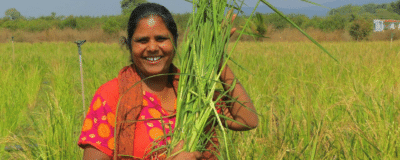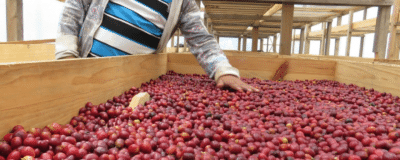Sponsor women farm leaders with a scholarship today!
Women make up 43% of the agricultural labor force and produce the majority of food in poorer parts of the world, yet they have access to less resources than their male counterparts. Closing this gender gap can improve the lives of women and their families, and create thriving communities. Scholarships provide women in positions of influence with knowledge and experiences they can share among their communities.
TAKE ACTION FOR CLIMATE
Women are our best allies in a changing climate. Project Drawdown ranks Women Smallholders #62 of 100 critical climate solutions.
TACKLE POVERTY
On average, women make up 43% of the agricultural labor force and produce 60 to 80% of food crops in poorer parts of the world. Women have less access to a range of resources, from land rights and credit to education and technology. Closing this gender gap can improve the lives of women, their families and communities.
IMPROVE THE ENVIRONMENT
Even though they farm as capably and efficiently as men, inequality in assets, inputs, and support means women produce less on the same amount of land. When agricultural plots produce well, there is less pressure to deforest for additional ground, avoiding emissions.
CULTIVATE FOOD SECURITY
If all women smallholders receive equal access to productive resources, their farm yields will rise by 20 to 30%; 100 to 150 million people will no longer be hungry.
Source: Project Drawdown
Scholarships for Movement-Based Master’s Degree in Agroecology and Food Sovereignty
Grow Ahead is teaming up with ECOSUR to fund scholarships for 13 professionals, peasant-farm leaders, leaders of Indigenous organizations, cooperatives and community associations from Mexico and Latin America to receive their Professional Master’s Degree in Agroecology for Food Sovereignty.
Scholarship for Vasantha Kumari
India
$2,500 raised
1 scholarship
Ended July 1, 2018
Scholarship: Vasantha Kumari
Campaign Goal: $2,500
Country: India
Vasantha is seeking a scholarship to spend one year at agroecology centre Amrita Bhoomi located in the pristine Biligiri Ranga Hills of India, developing skills in seed conservation in order to launch a seed distribution program.
COMSA Organic Agriculture Scholarships
Honduras
$3,500 raised
10 farmers
Ended September 31, 2017


